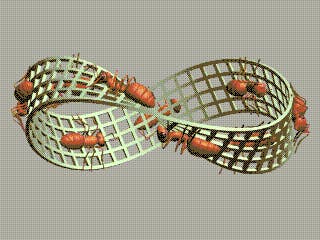Someone should make a game about: Set theory
Game, match.
Hello, and welcome to our new series which picks out interesting things that we'd love someone to make a game about.
This isn't a chance for us to pretend we're game designers, more an opportunity to celebrate the range of subjects games can tackle and the sorts of things that seem filled with glorious gamey promise.
Check out our 'Someone should make a game about' archive for all our pieces so far.
Set theory is a mess. Or at least I think it's a mess. I skipped it, if I'm being honest, back when I was studying this sort of thing, because I'd heard it was very interesting but also a one-way ticket to a very bad grade.
It really is interesting though. From what I gather, set theory grew out of one person, Georg Cantor, discovering in 1873 that there was a bit of a problem with maths. A problem which has remained "open" - unsolved by mathematicians or philosophers - to this day. The specifics are a bit out there, involving real numbers and irrational numbers and transcendental numbers - don't ask - but basically, he discovered that there can be two sizes of infinity. And that does not make sense.
I love when things don't make sense. Games are very good at solving things, especially with their stories but also, just as especially, with their puzzles - but they are not very good at not making sense. Not yet. They rely on logic to such an extraordinary extent, from the logic of the code on which they're made to the logic of how you actually play them. You learn that doing A produces result B; you need to get B so you do A. Jump on the Goomba, rotate the tetromino, pull off the double jump. You learn the rules, you follow them, you progress.

What I'd love is, from time to time, for that to be undermined; for the goalposts to be moved, the logic broken. Imagine having to adapt to a world that doesn't make sense, or work your way through it. There are glimpses of it in things I've played: What the Golf?, of all games, does this in a very literal sense, teaching you something then immediately throwing it back in your face (and making for some brilliant physical comedy at least, even if it doesn't quite capture what I mean). Destiny 2 did something that I'll remember forever where, at some point in a certain mission, you'll jump into a great abyss. For just a split second the world seems to blacken and morph. The dark rushes up to meet you but keeps on going over your head, and you seem to arrive on the floor beneath the floor, all inside-out and wrong side-up. Through the looking glass - then back to shooting things in the face.
Games can do this at a proper scale, I think. They can play with physical space and passage of time in a way that little else can. Virtual space can make ants run along mobius strips, and send you through time, and cram great expansive mazes into miniature buildings. Games can cheat, in other words, and put things on screen that can't work in your mind.
Back to set theory, for just a minute, and you'll see what I mean. Think about Russell's Paradox: a set of things that aren't in sets. Either the set contains things that aren't in sets, and therefore they also are in sets; or, the set doesn't contain things that aren't in sets, and therefore it's not a set of things that aren't in sets. Yuck.
But set theorists disagree! They didn't solve that paradox - because by definition paradoxes are unsolvable - so much as they sort of stepped around it. Set theorists "axiomised" set theory - they created symbols for communicating the meanings of it, because symbols are capable of conveying much more specific, precise meanings than the words we use in everyday language - and once it was axiomised Russell's Paradox just wasn't really a problem. It's a curio, for sure, but one of "naive" set theory, as the egg-heads put it now. They cheated.
And that's the joy of it. A lot of courses on a philosophy degree - like set theory, or so I hear from less tactically-minded coursemates - have you study a problem for ten weeks and at the end of it you realise the problem can't be solved. What someone's done is found a way to work around it, and I'd love the have the same sort of futility, the same mess of logic and illogic, thrown at me in a game. That way, like when struck with some paradox of philosophy, you couldn't use the old rules you've learned. You'd have to let the game cheat you, and you'd just have to move on.

